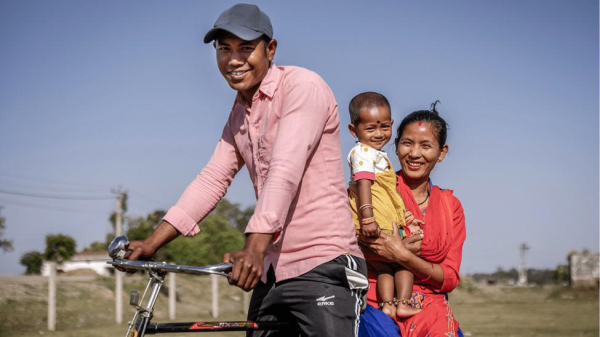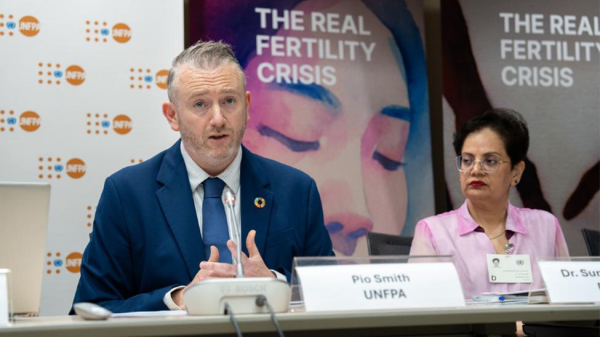KPL
The real fertility crisis gripping countries across Asia and the Pacific is not about birth rates being too high or too low – it is about people being denied the power to make choices about their own bodies, futures, and families.

A family rides a bike on their way home in Dhangadi, Nepal (Photo: UNFPA/Luis Tato)
(KPL)The real fertility crisis gripping countries across Asia and the Pacific is not about birth rates being too high or too low – it is about people being denied the power to make choices about their own bodies, futures, and families. This is the core message of UNFPA’s 2025 State of World Population report, ‘The real fertility crisis: The pursuit of reproductive agency in a changing world’, launched in Asia and the Pacific at the Third Asia and the Pacific Ministerial Conference on Civil Registration and Vital Statistics in Bangkok, on June 27.
This isn’t a crisis of ‘too many’ or ‘too few’ births – it’s a crisis of denied choice,” said Pio Smith, UNFPA Regional Director for Asia and the Pacific.
“We cannot assume that birth rates reflect people’s desires when so many are held back by gender inequality, economic pressure, or lack of access to healthcare, information, and services. Fertility rates may fluctuate, but the universal right to reproductive freedom must remain constant.”

Pio Smith, UNFPA Regional Director for Asia and the Pacific at the regional launch of UNFPA's State of World Population Report 2025 in Bangkok.
The global report finds that rising economic insecurity, unaffordable housing, and unpaid care burdens are deterring people from having the number of children they want, even in countries with accessible health services. In contrast, early marriage, lack of contraceptive access, and social stigma still drive unintended pregnancies across Asia and the Pacific.
UNFPA warns against both simplistic and coercive responses to population shifts, such as baby bonuses and fertility targets, noting that these measures are not only ineffective but violate human rights by denying individuals and couples the right to reproductive freedom and choice.
Instead, governments are urged to focus on rights-based solutions by:
•Investing in affordable housing, decent jobs, and parental leave
•Expanding access to the full range of reproductive health services and accurate information
•Offering better choices for parenthood to single people and discriminated groups, including people with disabilities and LGBTQIA+ individuals
•Tackling restrictive workplace norms and gender stereotypes
Gender inequality also remains a persistent barrier to reproductive autonomy. Women are often pushed out of the workforce due to caregiving responsibilities, while men face stigma for taking on active parenting roles.
A tailored mix of economic, social, and political measures is needed across countries to help people start or grow the families they want. As countries across Asia and the Pacific navigate complex demographic shifts, UNFPA stands ready to support with evidence, technical expertise, and a shared commitment to realizing rights and choices for all.
KPL